New Jersey’s First Annual Soil Health Conference was held on March 9,2010 at the Enterprise Center at Burlington County College. Over 200 farmers, engineers, landscape architects, soil scientists, planners, regulators, builders, landscape contractors, and concerned individuals gathered together to listen to the range of problems related to soil health and to contribute to solutions that work for everyone.
Soil kept in good “health” can fulfill its potential in producing our food, filtering and cleaning stormwater, absorbing and storing moisture (making it available in dry periods), providing clean drinking water from wells and rivers, and creating wholesome habitat for trout in our streams and shellfish in our estuaries. Healthy soil allows for luxuriant plant growth, which not only produces food and fiber, but acquires and stores carbon dioxide from the atmosphere, thus playing a role in climate stability. Healthy soil can recycle many “wastes” back into nutrients and valuable products. The effects of damaged soils are indirect, but avoiding damages that must be expensively remedied later is a direct benefit!

Jeff Moyer
Email Jeff Moyer – 610-683-1420
- Farm Director, Rodale Institute
- Lehigh County Community College, AAS Civil Engineering and Construction Technology
- Paul Smiths College, Preprofessional Forestry/Surveying
I currently serve as Chairman of the National Organic Standards Board (NOSB), helped write the national compost standards, pasture regulations, and aquaculture standards for fish production. I hold a position on the Leonardo Academy’s (ANSI) committee for sustainable ag and am frequently requested to speak at farming seminars and workshops nationally and around the world.
Currently as Farm Director I have vast experience and knowledge regarding organic farming, agronomic crops, vegetable production, livestock production (dairy and beef), apples, and composting systems. I have provided the media with a reliable source and perspective for information on the current agricultural issues.
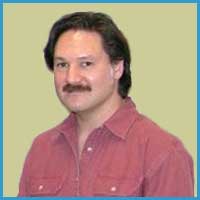
Fred C. Schoenagel III
Email Fred C. Schoenagel III – 908-735-0737 x 106
- Resource Soil Scientist – USDA- NJ Natural Resources Conservation Service
- B.S. Agronomy/Soils, Penn State University
- M.Agr. Soil Science
Demonstrations emphasized the importance of soil structure/pore space to the overall function of a healthy soil.ce, Penn State University
“Soils are living ecosystems that interact with every other ecosystem on the planet. Soils that are not “healthy” cannot carry out their normal functions and will inhibit these interactions, and eventually all the adjoining ecosystems may collapse. For this reason, healthy soils are essential to the overall health of the planet.”

Eileen B. Miller
Email Eileen B. Miller – 856 205 1225 ext 125
- Resource Conservationist – USDA- NJ Natural Resources Conservation Service
- BS Environmental Studies, Richard Stockton College
Eileen Miller is a Resource Conservationist with the USDA NRCS and has worked there since graduating from college in 1992. She assists NRCS field offices with technical issues relating to sustainable soil management, nutrient management, water quality & quantity issues, soil erosion control, agronomy and sustainable agriculture in the NJ Coastal Plain area.
“Healthy soil means to me that our ecosystem is fully functioning. It means a soil that can buffer nutrients, absorb water, is rich in living organisms and can produce healthy food and fiber for our world to enjoy. It is the source of our existence.”
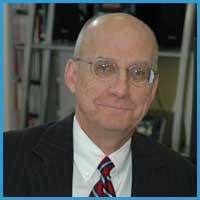
Joseph J. Skupien, PE, PP
908-806-7700
- President – Storm Water Management Consulting, LLC
- Rutgers University BSCE
“Soil conditions play a key role in both the reality and science of stormwater runoff. As such, healthy soil conditions can play a key role in our efforts to manage runoff and the activities that affect it.”
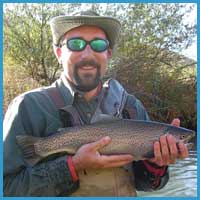
Tim Reilly
Email Timothy J. Reilly – 609-771-3962
- Research Hydrologist – Water Resources Division – US Geological Survey
- B.S. and M.S. in Geological Sciences from Rutgers University
“A healthy soil is a critical buffer of chemicals used at the land surface and represents the gateway for recharge of underlying aquifers.”
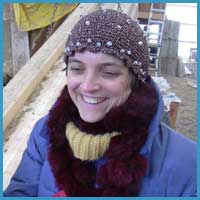
Jenifer Wightman
- Research Specialist – Department of Crop and Soil Science – Cornell University
- B.S. Carnegie Mellon University, Cell Biology
- M.S. Cornell University, Environmental Toxicology Carbon-Trading Education Materials
“I am obsessed with the exponential function. That is, with growing world population and growing energy and material consumption we do three critical things:
- We develop land away from farm and forest activities for housing or other industries,
- We exponentially deplete the non-renewable fuels that drive our contemporary society, and
- As we deplete the soils, the farm/forest base, and the fossil fuel reserves, we exponentially grow the greenhouse gases in our atmosphere.
Healthy soil has a reflexive relationship:
- The better the soil health, the greater the production potential to minimize our use of the non-renewable fossil fuel trust-fund and
- A healthy biomass production system recycles surface carbon while also maintaining soil health.
That is, healthy soils keep farm and forest land productive, they have the potential to reduce the rate of greenhouse gas emissions to the atmosphere, and they capture the finite sunlight of today to fuel our contemporary population (fossil fuel, after all, is just ancient photosynthesis captured over millions of years on the same surface of the earth and sequestered until we mine it, combust it, and release the carbon dioxide to the atmosphere). A firm grounding in the land-base secures soil and fossil energy resources while stabilizing the climate for future generations.”
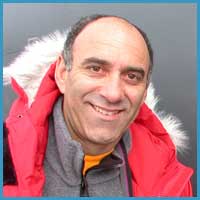
Dr. Rusty Rodriguez
Email Dr. Rusty Rodriguez – 206-526-6596
- Project Leader – Microbiologist / Affiliate Associate Professor
- U.S. Geological Survey / University of Washington
- Ph.D. Microbiology, Oregon State University
- B.S. Microbiology, University of California at Davis
- President, International Symbiosis SocietyBiological Resources Division
“Soil health is directly related to the structure of soil microbial communities which are responsible for critical ecosystem processes such as nutrient cycling, beneficial plant symbioses, food web stability; the vulnerability of habitats to invasive species; and the origin of many chemicals used for human health.”
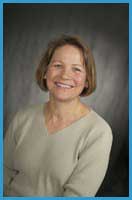
Dr. Mary Barbercheck
Dr. Mary Barbercheck – 814-863-2982
- Professor – Department of Entomology – Penn State University
- B.A. Environmental Biology, UC Santa Barbara;
- M.S. Plant Protection & Pest Management, UC Davis;
- Ph.D. Entomology, UC Davis
“Soil health in agricultural systems is strongly linked to conservation of beneficial organisms and the services they provide. Growing crops in systems that build soil health also promotes the biological diversity that helps keep pest arthropod populations in check, reducing the need to apply insecticides.”
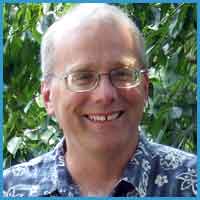
Robert Nicholson
Email Robert Nicholson – 609-771-3915
- Environmental Studies Program – New Jersey Water Science Center – U.S. Geological Survey
- M.S. Environmental Engineering, Drexel University
- B.A. Environmental Studies, UC Santa Barbara
Bob’s presentation will describe some of the problems facing Barnegat Bay and what we have learned about the relations between nonpoint-source contaminants, watershed processes, and the Barnegat Bay ecosystem. The case study illustrates how healthier soils in the bay’s watershed could help lead to healthier coastal resources.
“A healthy soil, like any other essential environmental component that we would describe as healthy, is one that fully provides all the functions and services we attribute to it as a life-sustaining part of a healthy environment. Healthy soil functions and services are many, and would include providing clean water, recharging aquifers, and storing and filtering storm water.”
